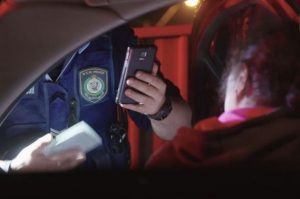Your right to remain silent
You have the right to remain silent, whether you have been stopped in the street, pulled over by the Police in your car, agreed to go to the police station or are under arrest.
There are however certain questions the police will ask you that you have to answer or you will be breaking the law.
The Police are entitled to ask you:
- your name and address
- date and place of your birth (in drug matters)
- questions regarding broken traffic laws or whether you’ve seen an accident
- other questions that they can ask under special laws.
If you don’t want to answer questions and you’re not sure whether you must answer, get legal advice.
Being asked to accompany police to the station
You only have to go back to the police station with police if you are formally arrested for an offence or formally detained for questioning about an indictable offence.
You must also go with police for a blood or breath test in relation to a drink or drug driving offence.
Otherwise, if police ask you to go with them to the police station, you can refuse.
The police can’t force you to go to the police station without arresting you. If they insist that you go with them, you can ask if you’re under arrest. If not, you don’t have to go.
Even if you agree to go to the police station, you have the right to remain silent.
Sometimes the police might tell you that you need to come with them and state on tape that you don’t want to be interviewed.
How long police can detain you
Police can keep you for up to 8 hours unless a court order extends the period. They can question you for up to 4 hours in that 8-hour period.
What sort of questions can the Police ask?
Generally, police can question you after detaining or arresting you. However, you can insist on your right to remain silent. If the police have arrested you because you have committed an indictable offence (more severe offence like murder, rape, robbery, assault, and break and enter which are dealt with in District or Supreme Court), or they suspect you have, they must caution you about your right to remain silent.
Before questioning you, they must also tell you that any statements you make might be used as evidence against you.
Basic questions the police can ask you:
- your name and address
- date and place of your birth (in drug matters)
- questions regarding broken traffic laws or whether you’ve seen an accident
The Police are not allowed to get a confession out of you by making any threats or promises of any kind.
Questioning people with specific needs
Police have to:
- provide an interpreter where needed;
- have a parent or an independent person present when questioning a child about a serious matter;
- notify a legal aid organisation and arrange for support for Aboriginal and Torres Strait Islander people where required;
- allow a person with impaired capacity to speak with a support person and not continue with questioning if the person does not have the legal capacity to be questioned. If police realise that a person has impaired capacity only part way through the interview, they must suspend questioning to organise a support person;
- not question a person who is under the influence of drugs or alcohol.
Formal police interviews
Police questioning can occur in a formal interview at a police station or in a less formal situation (such as your home) while investigating a disturbance or carrying out a warrant.
You may be formally interviewed:
- after being arrested
- after being formally detained for questioning about an indictable offence
No matter the situation, never give an interview until you have obtained proper and independent legal advice.
Safeguards
At a formal interview, the police ask questions and record your answers. If police question you about an indictable offence, they must follow laws that protect your rights, by:
- warning you about certain things before questioning you;
- warning you in a language that you can understand and use interpreters when necessary;
- telling you that you have a right to remain silent and do not have to answer their questions;
- telling you that you can contact a support person and a lawyer, and allow you to contact them;
- recording the caution electronically or writing it down if necessary;
- recording the interview itself electronically or write it down if necessary. You are entitled to a free copy of the interview tape within 7 days for a tape recording or 14 days for a video recording.
Support during the interview
Police must allow you to contact a support person (a friend or relative) and a lawyer, and arrange for them to be with you during your formal interview. Police can’t listen to your conversations with your lawyer.
Police can exclude your support person from the interview only if your support person unreasonably interferes with the interview. Your support person should not try to answer questions for you, constantly interrupt questioning or try to hand you answers.
However, they should ask police to clarify questions, and can challenge improper questions or the way a question is asked. It is always safer to have a lawyer with you rather than just a support person.
Recorded interviews
Interviews must be recorded electronically, including the cautions and your responses.
If you confess to or admit anything, police must write this down in English either immediately or as soon as possible after you admit it. They must read it out to you in English (or other language used in the interview) and allow you to correct any mistakes. They should record this process electronically.
Be aware that police will often secretly record their conversations with you. This can occur at any point, including on a roadside or at the scene of a police raid.
Getting legal advice before talking to Police
Do not confess to anything and avoid giving an interview until you have spoken with a lawyer.
Even if you understand the law, you might accidentally admit something that allows police to charge you with an offence. You may not realise how harmful your statements could be.
If you’ve been detained for questioning or arrested, you have a right to silence. After stating your name and address, you should state ‘I have nothing to say’ and then seek legal advice.
These rules also apply if police want to question you after you’ve been charged with an indictable offence. If a police officer refuses you access to or contact with your lawyer, note their name and any witnesses to the conversation. Also ask to speak with the officer in charge of the station or watch-house.

